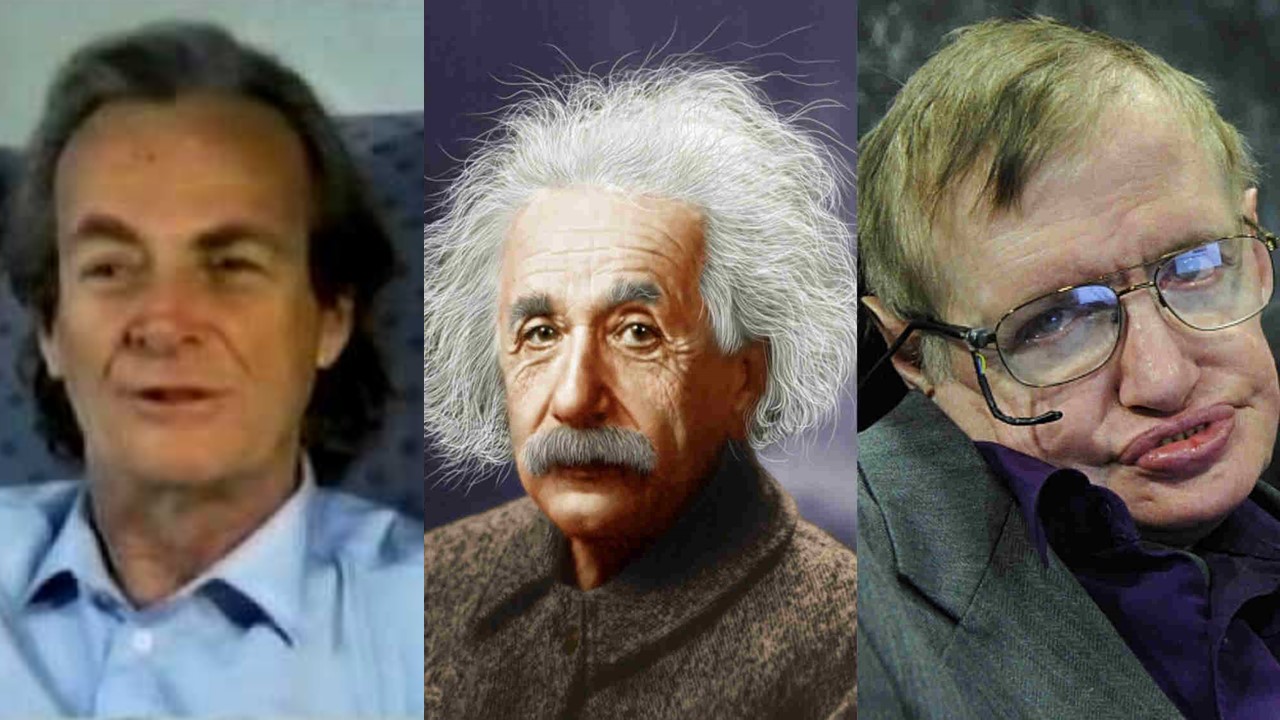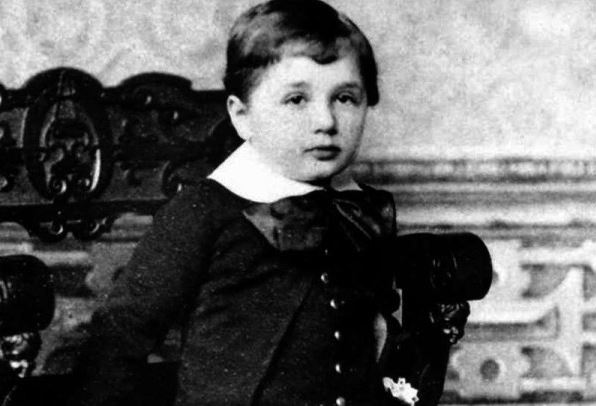
While several physicists like James Clerk Maxwell, John von Neumann and Lev Landau were child prodigies, most of the scientific greats developed an interest in science thanks to the environment they were brought up in.
A study conducted by Pew Research found that 27% scientists were motivated by their school teachers, 17% were inspired by childhood trips to science fairs and 12% became scientists thanks to family encouragement.
In this post, let us learn what motivated Geniuses like Einstein, Tesla, Feynman, Hawking and others to become scientists.
Richard Feynman
Feynman's father, Melville was an immigrant from Minsk, who although a uniform salesman by profession, had always wanted to become a scientist.
In one interview, Feynman recalled: When I was a child, my father would often let me sit on his lap and read to me from Encyclopedia Britannica.
Melville also encouraged his daughter Joan, nine years younger than Richard, to take up an interest in astronomy. She became a distinguished astrophysicist later on.
Albert Einstein
On Einstein's fifth birthday, his father gifted him a compass which left a deep and lasting impression upon the five year old. He noticed that the needle always pointed in the same direction no matter which way he turned the compass.

Einstein wrote years later: "It made me wonder why this needle behaved in such a determined way. Something deeply hidden had to be behind things." Thus, the compass was his introduction to scientific enquiry.
Stephen Hawking
Hawking was born in a family of intellectuals – Both his parents attended the University of Oxford, where his father studied medicine and his mother read philosophy.
He was enrolled at St. Albans school where he was nicknamed Einstein, despite his grades being below average. But of course, there was a reason why his friends called him that...
Hawking used to build model boats and aeroplanes at his home. In 1958, with help from his maths teacher, Dikran Tahta, Hawking and friends built a computer from clock parts, telephone switchboard and other recycled parts.
Carl Sagan
In 1993, Carl wrote: My parents knew almost nothing about science. But in introducing me to skepticism and to wonder, they taught me the two uneasily cohabiting modes of thought that are central to the scientific method.
His love for science was aroused at only 4 years old when his parents took him to the 1939 New York World's Fair where he witnessed the America of tomorrow – spiraling buildings, flying cars and smartphones.
Nikola Tesla
Tesla's mother had a talent for making mechanical appliances at home. She could also recite Serbian epic poems by heart. Nikola thus credited his eidetic memory and creative abilities to his mother's genes and influence.
He attended junior high school in Karlovac, central Croatia where he became interested in demonstrations of electricity by his physics professor. Tesla later wrote that these demonstrations made him want to know more of this wonderful force.
Jocelyn Bell Burnell
She is an astrophysicist who found the first radio pulsar in 1967. Her discovery was recognized by the Nobel Committee with a physics Prize, but despite being the one to identify the pulsar, she wasn't among the recipients.

Young Jocelyn discovered her father's books on astronomy and developed an early interest. However, at school, the girls' curriculum only included cooking and stitching classes, rather than science.
Her parents protested against the school policy, but to no avail. So they sent her to another school where she was permitted to study science. Jocelyn was impressed by her physics teacher, Mr. Tillott. She recalled: He was a really good teacher and showed me, actually, how easy physics was.
Marie Curie
Her father, Władysław Skłodowski was a mathematics and physics teacher. After Russian authorities banned laboratory instruction from Polish schools, Skłodowski brought much of the lab equipment home and instructed Maria in its use, at a young age.
Ed Witten
Mathematician and physicist Edward Witten, winner of the Fields Medal, grew up hearing about physics from his father, Louis Witten, who himself was a gravitational physicist. "I would talk to Ed about science the way I would talk with adults." Louis told The Guardian.
Summing up:
It can be concluded that parents and teachers who nurture the curiosity of children often help them towards a career in science. Whether it be book reading, gifts like model train, compass or general encouragement; early guidance is always ideal in making of a great scientist.






 Physics, astronomy and science history blog for students
Physics, astronomy and science history blog for students
Responsive Ad Slot